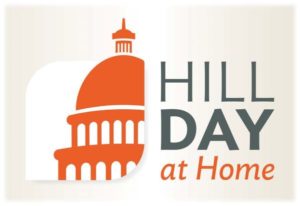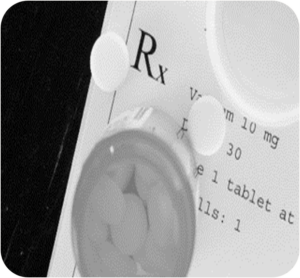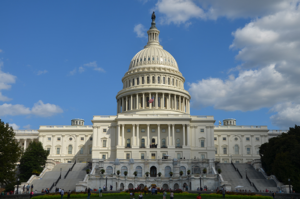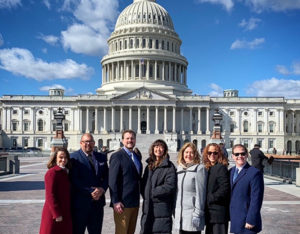Building on a long history of championing personal advocacy, DBSA also advocates for placing peers at the forefront when determining needs and best practices for mental health services. We support both policy and media related advocacy at national and state levels, ensuring the needs and concerns of peers are front and center in policy, service delivery, and treatment decisions.
On this page:
- It’s Time to Take Action
- Advocacy Priorities
- Peer Support
- DBSA Policy Positions
- Appeal a Mental Health Insurance Claim Denial
It’s time to take action
DBSA is advocating for the interests of people with mood disorders, their caregivers, and their families. Sign up to get updates about issues and actions you can take to support the movement for mental health. When you subscribe, you’ll also receive timely action alerts informing you as to when it is most advantageous to contact your policy-makers.
Advocacy Priorities
Expanding access to quality mental healthcare
We believe mental healthcare should be available and accessible for all who need it.
Increasing access to medical products
For many people living with a mental health condition, access to the full range of the most effective medical products is a crucial component of successful treatment and wellness. Help ensure these are available to everyone who needs them.
988: America’s Suicide Prevention and Mental Health Crisis Lifeline
Starting July, 2022, 988 will be the new, national number to call for mental health crises and suicidal ideation. More work needs to be done to ensure crisis centers are adequately funded and staffed.
Transform the definition of Wellness
Mood disorders affect as many as 21 million individuals of all ages in the U.S. and there exists a significant unmet need for more and better treatment options. To address this need, DBSA created the Well Beyond Blue initiative to accelerate innovation in treatment and care across the entire health care system. The first phase of this initiative has focused on aligning medical product development with the treatment outcomes desired by the individuals living with these conditions.
Building on those recommendations, DBSA partnered with the Milken Institute Center for Strategic Philanthropy to conduct the Supporting Wellness survey to better understand the aspects of wellness that are most important to people living with mood disorders. Survey results were used to support an externally-led Patient-Focused Drug Development meeting.
A written summary of the meeting is available in the Voice of the Patient Report.
Survey results and feedback from the meeting were also used to provide comment to the FDA document: Major Depressive Disorder: Developing Drugs for Treatment; Guidance for Industry.
Watch the Patience Focused Drug Development Meeting.
The white paper Major Depressive Disorder: Designing Clinical Trials That Support Patient-Focused Drug Development
- identifies the current gap between medical product development, the regulatory approval process, and person-centric outcomes; and
- makes recommendations for narrowing these gaps.
Peer Support
A peer specialist is an individual with lived recovery experience who has been trained and certified to help their peers gain hope and move forward in their own recovery. As a person who has lived experience of a mental health condition, a peer specialist has valuable insights into what makes recovery possible and serves as a role model to the peers they serve.
The behavioral health workforce is expanding to include the evidence-based utilization of qualified peer specialists as part of a care team to facilitate strength-based wellness and improve quality of life. These benefits are evidenced by larger social support networks, and reduced hospitalizations, use of crisis services, and symptoms. Based on positive outcomes of peer support services, the Centers for Medicare and Medicaid Services (CMS) issued guidelines for states wanting to bill for peer support services.
DBSA strongly supports federal and state policies to expand and strengthen the peer workforce. Current federal law gives states the option to adopt peer specialists as providers under their state Medicaid plans but does not require that they do so. Peer specialist training and certification requirements are determined on a state-by-state basis. Over 75 percent of states currently fund peer specialist services through Medicaid. In addition, the Department of Veterans Affairs (VA) employs Veteran peer specialists to work in VA facilities.
There are numerous opportunities for advocates to get involved in expanding and strengthening peer support services. Visit your state’s Medicaid website to learn whether peer support services are already covered by Medicaid in your state.
Become a peer support specialist
DBSA Policy Positions
DBSA creates and promotes messages, structures, and practices that advance mental health, personal choice, and wellness.
One fundamental goal is to achieve broad access to quality mental health care, therefore DBSA has declared its support for a number of initiatives.
DBSA amplifies the peer voice by authoring papers published in journals on topics advancing peer-centric research and patient-centric are.
Appeal a Mental Health Insurance Claim Denial
Your insurance carrier must provide you with information on how they made their decision to deny you coverage. Once obtained, you have the right to appeal that decision.
Advocacy Newsletters




































Partners in Advocacy
Support for DBSA’s national advocacy activities were made possible by the following healthcare industry partners:
Advocacy in Action
- Axsome Therapeutics
- Janssen
- Neurocrine Biosciences
- Teva Pharmaceuticals
- The Takeda Lundbeck Alliance
FDA Engagement Initiative/Transforming the Definition of Wellness
- Alkermes
- Biogen
- Novartis
- Otsuka
- Sage
- The Takeda Lundbeck Alliance
Pharmacogenetic Testing Advocacy Initiative
- Myriad Genetics


